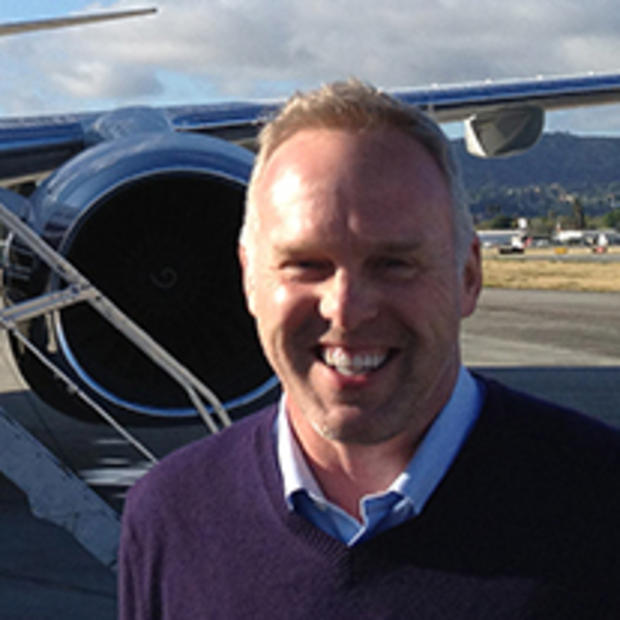Kent Craford sounds exhausted. "This is the hardest thing I've ever done" says the CEO of Portland-based SeaPort Airlines, the startup airline which marked this week the first anniversary of its flights between Seattle's Boeing Field and Portland's PDX.
The upstart airline earns rave reviews from customers flying between the two cities. Its business model is built on saving time, eliminating airport security hassles, free parking, and avoiding I-5. Fares are generally matched to competitor Horizon Air's rates. But so far, SeaPort does not appear to have filled enough seats to be consistently profitable on its main Seattle to Portland route.
For SeaPort's customers, the trip means arriving at the airfield 10 minutes before departure instead of an hour and loading planes in 3 minutes instead of 30. That translates into a 90-minute door-to-door trip on SeaPort. Boeing Field's proximity to downtown Seattle makes it possible for SeaPort customers to travel to Portland for a full day of meetings and return home for dinner the same day. Because SeaPort's PC-12 turboprop planes are too small (nine passengers and a flight crew of two) for the TSA to worry about, SeaPort customers avoid security lines and get to keep their shoes on.
Yet despite an attractive formula, SeaPort has struggled with basic challenges of the airline business: How to survive a once-in-a-lifetime recession and how to garner enough consumer attention to sell a product with a relentless obsolescence curve. Every time an airplane takes off with an empty seat, that revenue potential vanishes into thin air while all the associated costs still make a beeline for the bottom-line.
The company has made changes to its original business plan, brought in additional investors, and now looks, one year later, much more like the rest of the industry: flying one mainline route and a handful of subsidized small-town routes to help pay the bills. SeaPort now flies to Pendleton, Astoria, and Newport, Oregon in addition to Seattle and Portland and may soon announce another expansion in Arkansas.
Neither Craford nor his partners came from the airline industry, a fact that has both helped and hurt SeaPort. The airline made some beginner mistakes that grizzled airline veterans likely wouldn't have; yet the company has managed to create a concierge-like customer-service culture more like a startup than a longtime player.
But the shocks have been severe. "We started with a really strong July in 2008 and then we ended promotional pricing and didn't feather in the change. August freaked us out. That was probably our biggest mistake," says Craford. After even more shocks to the economy that tore through the entire air-travel industry, "We dug ourselves a pretty deep hole," he says.
The unforgiving economics of the airline business have a way of changing brash new startups far more than those brash new startups are able to change the industry itself. For SeaPort, that reality meant finding ways to fly more routes and earn more revenue and increase the utilization of its fleet of gleaming Swiss turboprops. Craford puts it plainly: "It was grow or die." To do that, the company looked in the same direction that airlines have always looked since planes were covered in fabric and flew the Contract Air Mail — government subsidies.
"It is hard enough to be new and different in a normal economy. It is really hard to be new and different in a bad economy," concedes Craford. "We learned that you can't make a single city-pair work... We pivoted and took a departure from our original business plan."
SeaPort pursued and won a two-year $3.2 million contract to fly between Pendleton and Portland as part of the federally subsidized Essential Air Service program. In addition, the airline waged a hard-fought battle to win a state of Oregon $4.5 million two-year subsidy to provide air service expansion to the towns of Newport and Astoria along the Oregon Coast.
"We've developed a kind of airline multi-tool," says Craford, one that allows SeaPort to fill two very different roles: that of mainstream carrier on the Seattle to Portland run, and that of small town subsidized air service provider elsewhere.
That latter role is one that is getting tougher and tougher for the major players to fill. In Pendleton, Oregon, for example, the service was formerly provided by Horizon Air. When that carrier standardized its fleet on the Bombardier Q400 airplane, with 76 seats, it became largely impossible to offer cost-effective service, subsidized or not, with so big a plane to a small town.
Now, SeaPort is taking its multi-tool on the road. Last Friday, the airline was chosen to provide service from four small cities in Arkansas to Memphis and offered a U. S. Department of Transportation subsidy of $6 million to do so. The amount of the award was lower than SeaPort's bid, so the airline has ten days to decide whether to accept it. If it does, the airline aims to start service on October 1.All the while the 19 daily flights between Seattle and Portland routinely have more empty seats than full ones. The Seattle market is notoriously tough to crack, with longtime local Horizon Air holding a lock on the loyalty of most corporate travel departments. Yet Craford sees inroads being made in the small business traveler market and says SeaPort is adding one new corporate account a day and saw a 10 percent increase in boardings in the month of May compared to April.
Craford says SeaPort "is revolutionizing short distance air travel." Still, it is easy to believe him when he sums up the airline business: "There are lots of easier ways to make money than this."



